UNITED NATIONS PEACEKEEPING
India delivered on its promise of 2,00,000 doses of COVID-19 vaccines for the United Nations Peacekeeping Force (UNPKF) worldwide, sending a shipment bound for Copenhagen.

UN Peacekeeping:
- UN peacekeepers provide security and the political and peacebuilding support to help countries make the difficult, early transition from conflict to peace.
- Principles: UN Peacekeeping is guided by three basic principles:
- Consent of the parties;
- Impartiality;
- Non-use of force except in self-defence and defence of the mandate.
- Consent of the parties;
- Role of Security Council: The United Nations Charter gives the United Nations Security Council the responsibility to maintain international peace. For this reason, the international community usually looks to the Security Council to authorize peacekeeping operations through Chapter VII authorizations.
- Present status: There are currently 12 UN peacekeeping operations deployed.
- For its services, UN Peacekeeping has also received the Nobel Peace Prize.
- UN peacekeepers are often referred to as Blue Berets or Blue Helmets because of their light blue berets or helmets.
HYPNEA INDICA; HYPNEA BULLATA
Two new species of seaweed have been discovered by a group of marine biologists from Central University of Punjab, Bathinda.

About:
- Named Hypnea indica (after India) and Hypnea bullata (because of the blisterlike marks on its body – bullate), the seaweeds are part of the genus Hypnea or red seaweeds.
- While Hypnea indica was discovered Kanyakumari in Tamil Nadu, and Somnath Pathan and Sivrajpur in Gujarat, Hypnea bullata was discovered from Kanyakumari and Diu island of Daman and Diu.
- They grow in the intertidal regions of the coast, namely the area that is submerged during the high tide and exposed during low tides.
- The genus Hypnea consists of calcareous, erect, branched red seaweeds. There are 61 species of which 10 were reported in India. With our two new species, the total number of species now would be 63.\
CHINA, IRAN SIGN 25-YEAR ‘STRATEGIC PACT’
China and Iran signed what was described as a 25-year “strategic cooperation pact”.
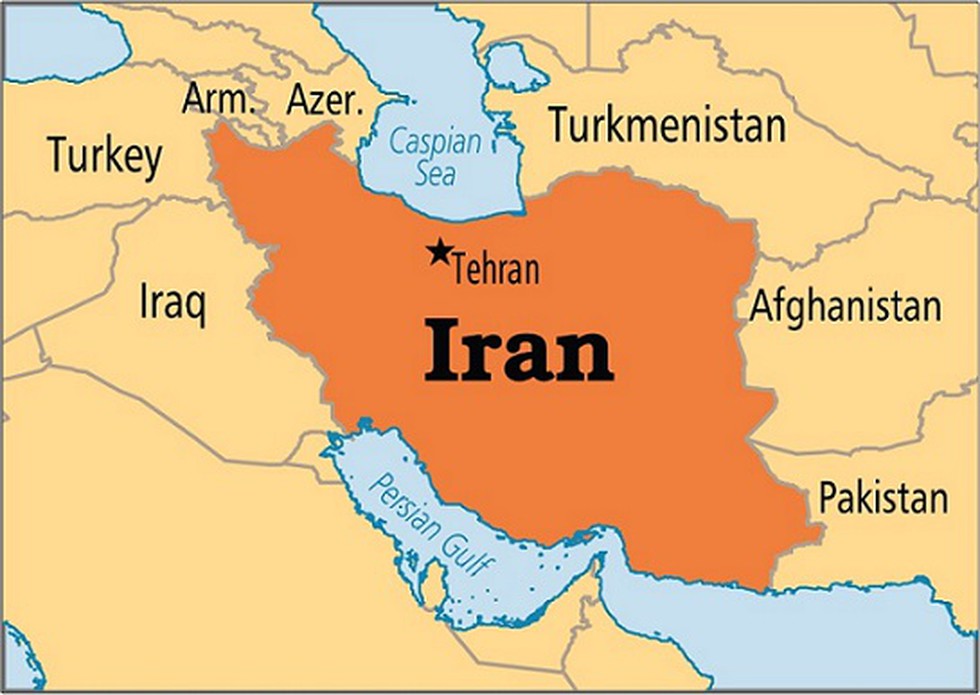
About:
- While details of the new 25-year pact were not immediately available, it includes “political, strategic and economic” components.
- This document can be very effective in deepening relations and would establish a blueprint for “reciprocal investments in the fields of transport, ports, energy, industry and services”.
Background: Nuclear Deal and Sanctions
- The agreement comes amid a major push from China to back Iran, which counts on Beijing, its largest trading partner, as it deals with the continuing weight of sanctions re-instated following then U.S. President Donald Trump’s decision to withdraw from the Iranian nuclear deal.
- Earlier this week, China and Russia called for the U.S. to “unconditionally return to the Joint Comprehensive Plan of Action (JCPOA) as soon as possible and revoke the unilateral sanctions against Iran”.
- In this context, they proposed “the establishment of a regional security dialogue platform to converge a new consensus on resolving the security concerns of countries in the region”.
MOITREE
On the occasion of the birth centenary of the founding father of Bangladesh Sheikh Mujibur Rahman, renowned vocalist Pandit Ajoy Chakrabarty has composed a new Raag named ‘Moitree’ as a tribute to the Bangabandhu.
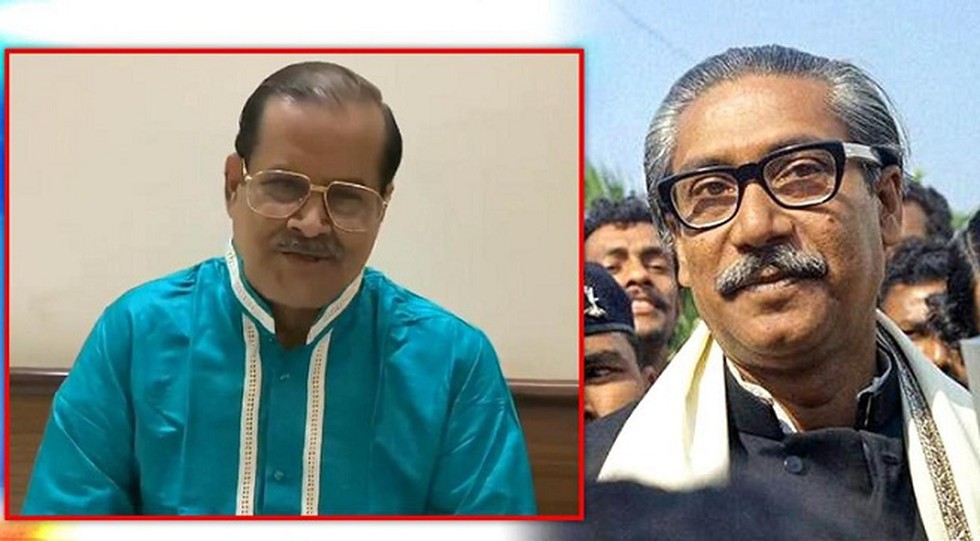
About:
- The new Raag is dedicated to Bangabandhu Sheikh Mujibur Rahman with elements of ‘maitree’ or India Bangladesh friendship.
- It is a newly composed Raag incorporating the classical rules for the composition of Raag.
- Three compositions will be presented which are written in Sanskrit, Hindi and Bengali languages.
INDIA-BANGLADESH RELATIONS
India and Bangladesh signed 5 MoUs in the fields of Disaster Management, trade, NCC, ICT and setting up of sports facilities during the official visit of Prime Minister Narendra Modi to Bangladesh.
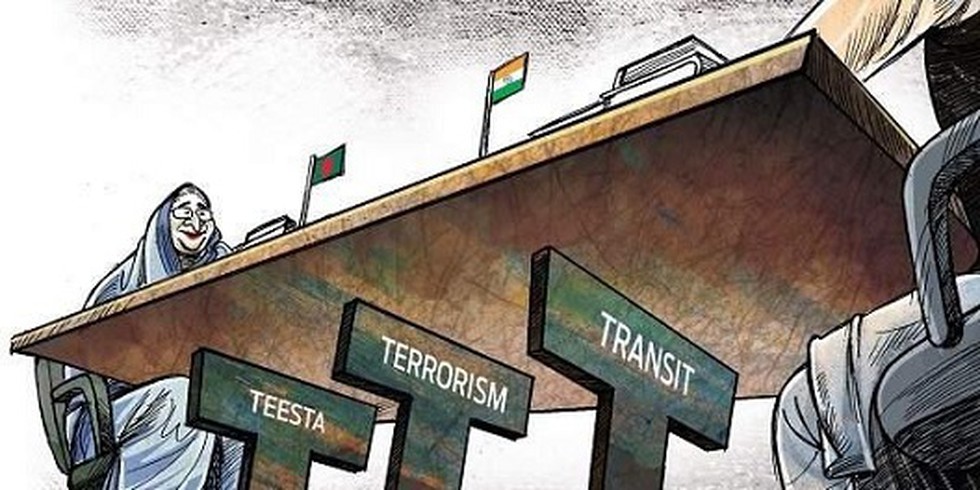
About:
- Foundation stone was laid for infrastructure development for power evacuation facilities from the Rooppur Nuclear power plant.
- The Bangladesh leg of the Banagabandhu-Bapu Digital Exhibition was inaugurated by the two Prime Ministers. It will be taken to other parts of the world including the UN.
- Both the leaders also unveiled the foundation stone for the construction of a memorial at Ashuganj honoring the martyrs of Indian armed forces in the 1971 Liberation War of Bangladesh.
- India gifted 109 life support ambulances to Bangladesh and also 1.2 million doses of the Covishield vaccine.
- Three border haats were also opened along the India-Bangladesh border.
During the visit a number of announcements were made.
- A direct passenger train named ‘Mitali Express’ will run between Dhaka and New Jalpaiguri.
- Prime Minister Modi invited 50 young entrepreneurs from Bangladesh to connect with India’s start up ecosystem.
- 1000 Subarno Jayanti Scholarships were announced for the Bangladeshi students to study in India at the Undergraduate and postgraduate levels.
- A Bangabandhu Chair will be established at Delhi University to facilitate Bangladesh studies.
- Both countries agreed to start a new area of cooperation in the Civil nuclear and space sectors.
RESOLUTION 46/L1
India abstained from voting on a resolution in the United Nations Human Rights Council (UNHRC) that makes a wide-ranging and damaging commentary on the human rights situation in Sri Lanka.

About:
- Resolution 46/L1 has decided, among other things, to “strengthen” the Office of the High Commissioner on Human Rights to collect evidence and develop possible strategies for future accountability processes for gross violations of human rights in Sri Lanka.
- It refers to “persistent” lack of accountability for rights abuses committed through the years by “all parties” in Sri Lanka, including the LTTE.
- Most seriously, it expresses a lack of confidence in the ability of the present government in Colombo to address the shortcomings.
- Among the 14 countries that abstained were Japan, Indonesia, Bahrain and Nepal. Among the 11 that voted against were China, Cuba, Pakistan, Bangladesh, Russia, and Venezuela.
CRYPTOCURRENCY
The corporate affairs ministry has announced companies will have to disclose any holding or dealings in cryptocurrencies or virtual currencies in their financial statements filed with the Registrar of Companies (RoC).

About:
- All companies will now have to disclose in their statutory financial filings to the RoC
- any profit or loss on transactions involving cryptocurrency,
- the amount of cryptocurrency held on the reporting date, and
- any deposits or advances received from anyone for the purpose of investing in cryptocurrencies or virtual currencies.
- any profit or loss on transactions involving cryptocurrency,
- Some experts have said these disclosure requirements indicated the government is open to regulating cryptocurrencies instead of banning them.
BIHAR SPECIAL ARMED POLICE BILL, 2021
The Opposition in Bihar has called a statewide bandh on March 26 to protest the passed of the Bihar Special Armed Police Bill, 2021 by the Bihar Assembly.
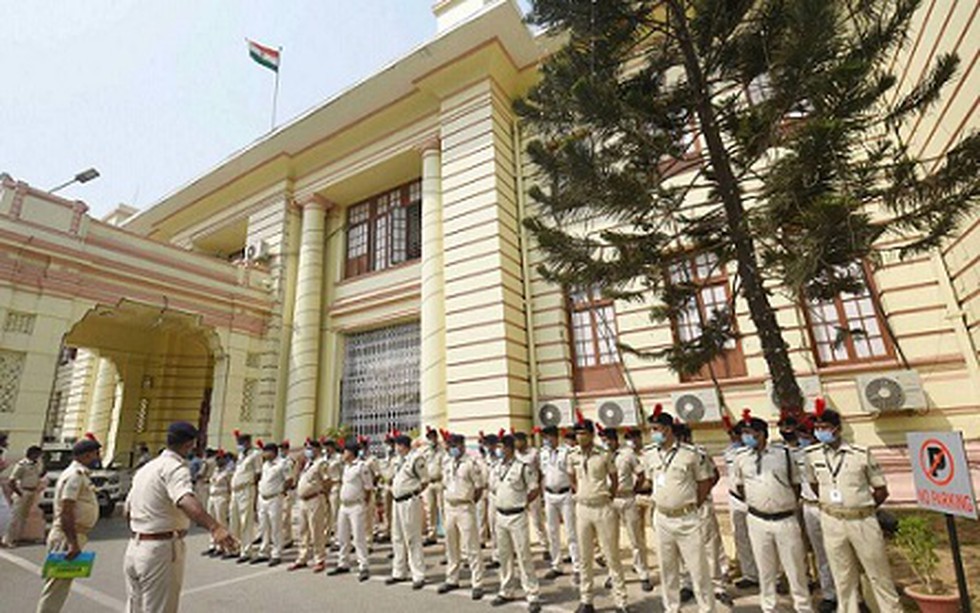
About:
- The bill aims to develop the Bihar Military Police into a well-trained and fully equipped armed police force with multi-domain expertise to cater to the development needs and the larger interest of the state.
- At present, the Bihar Military Police is entrusted with the security of the Mahabodhi Temple in Gaya, the Darbhanga airport, and other industrial and commercial establishments.
- The new Bill renames the Bihar Military Police as the Bihar Special Armed Police, and gives the force more teeth, on the lines of the Central Industrial Security Force (CISF), so it can better secure the commercial and industrial assets of the state.
- Mandate of the force will be the “maintenance of public order, combating extremism, ensuring the better protection and security of specified establishments in such manner as may be notified and perform such other duties, as may be notified.”
- It empowers Special Armed Police officers to carry out searches and arrests without warrant, and courts being able to take congnizance of certain offences by the officers only after government sanction.
- The mahagathbandhan in Bihar has called the Bill “draconian”
PRODUCTION-LINKED INCENTIVE (PLI) SCHEME FOR MANUFACTURING OF MOBILE PHONES
The Indian Cellular and Electronics Association (ICEA) has written letters to the NITI Aayog to consider declaring 2020-21 as zero year for production-linked incentive (PLI) scheme for manufacturing of mobile phones.

About:
- PLI schemes for all sectors that have been announced since April last year envisage incentives on achievement of a minimum threshold of cumulative incremental investment and incremental sales of manufactured goods net of taxes.
- Since the government notified the PLI for mobile manufacturing on April 1 last year, FY21 was considered as the base year for the calculation of incremental investments and sales, and therefore the incentives to be given to companies.
NDIAN RHINOCEROS
With the BJP frequently invoking Assam’s world-famous one-horned rhino to connect with the people of the state, the animal has now become a part of poll rhetoric, with promises to save “the pride of Assam”.
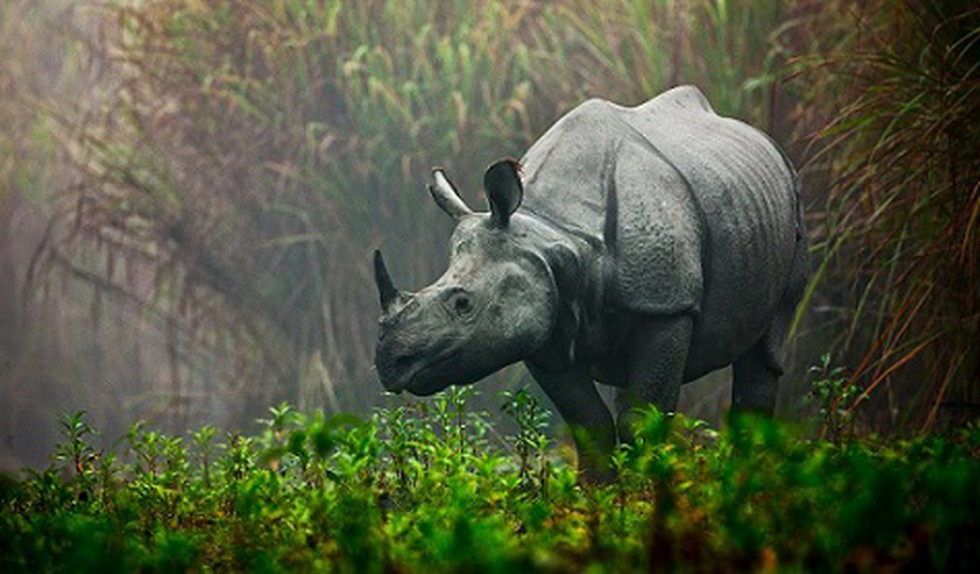
About:
- The projection of rhino as the pride of Assam began during the Assam Movement (1979-85).
- Rhino started emerging as a player in the political narrative of Assam as “its poaching was linked to the control of indigenous people over land, resources and influx of immigrants”.
- According to the rhino census of 2018, there are 2,413 rhinos in Kaziranga alone.
- It is common for every party contesting in Bokakhat and Kaliabor, the two constituencies that cover most of Kaziranga (the park spreads over six constituencies), to say that they will protect the rhino.
Comments
Post a Comment